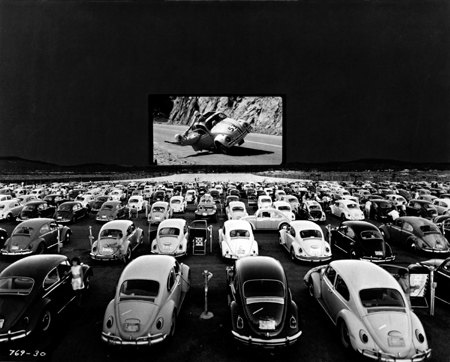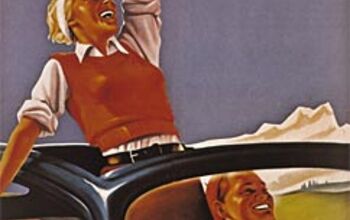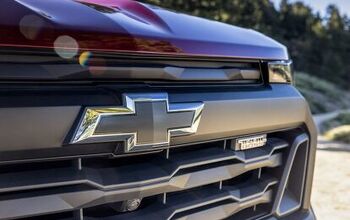Volkswagen's Long Road to Recovery Pt. 2
Germany’s IGM is the world’s largest labor union. What’s more, German law dictates that half of any German corporation’s supervisory board (minus one) must be “reserved” for its members. In Volkswagen’s case, even elected board members are subject to union influence; the politically malleable state government of Lower Saxony controls VW’s elected seats. As previously described, union control over “The People’s Car” has inflicted grievous harm on VW’s brand positioning. Yet in the last year, there have been signs of change.
Traditionally, Social Democrats have controlled the government of lower Saxony. In 2003, for the first time in thirteen years, the electorate voted the conservative-minded Christian Democrats into power. While not insensible to traditional politics, the new players are not quite as close to (i.e. owned by) the unions.
As an indirect result of the election, Volkswagen managed to convince the IGM to extend their working week from 28 to 33 hours– without compensation. While it’s still a ridiculous state of affairs, the concession would have been unlikely under a Social Democrat government. And it represents an important paradigm shift in VW’s labor relations.
The second change arrived courtesy the European Union (EU), who’re moving to throw out the so-called “Volkswagen Law” unconstitutional.
The Volkswagen Law was introduced in 1960, when the government of Lower Saxony raised cash by “semi-privatizing” VW (i.e. selling part of the company to investors without losing control of the supervisory board). The legislation stipulated that no VW shareholder could exercise more than 20 percent of voting rights, regardless of the size of their stake in VW. The set-up guaranteed the government's absolute power over VW— removing the incentive for a large institutional investor to buy a large block of VW’s stock.
When it became clear that the EU would entertain a challenge to the Volkswagen Law, Porsche AG saw a chance to finally gain control of the automaker spawned by its own founder and/or assure a supply of parts and technology. By the end of this year, when the law is officially overturned, Porsche will own at least 29.9% of Volkswagen: a controlling stake.
Of course, unlike any government (even if it isn’t Social Democrat), Porsche’s main objective is to make money. This Porsche knows how to do. As the world’s most profitable automobile manufacturer, as a long standing VW partner (e.g. the Touareg and Cayenne SUV's are platform partners), Porsche knows where to cut waste and inefficiency and how to maximize margins.
Things have already started moving at VW. Volkswagen is replacing its most important vehicle as early as 2008. The company has vowed to remove the production problems that make the Golf too expensive. It will have a less complex suspension, easier to manufacture doors and simplified electronics. VW is also likely to increase its reliance on more cost-effective outsourcing. Porsche currently produces about 20 percent of its own parts; Volkswagen still makes most of its own parts.
There will also be more economical cars. VW’s high-mileage diesels will soon share DaimlerChrysler’s BLUETEC filtering system, making them available to diesel-starved, California-compliant US states. VW recently unveiled their Polo Blue Motion, which is supposed to achieve a combined 60mpg. The emphasis indicates that VW understands the need to return to producing thrifty, reliable cars for the masses.
But even with Porsche’s help and without Detroit’s enormous legacy costs (thank you socialism), VW’s union contracts make building inexpensive German cars cheaply an uphill battle. Despite VW’s dubious track record for building “German quality” products abroad— the disastrous American Rabbit (Golf) factory and the hecho-en-Mexico Mark 3 Jetta spring to mind— the company understands the unavoidable need to build products well outside the Eurozone.
VW is certainly finding its feet in China. Working with its mandatory Chinese “partners,” Volkswagen is The People’s Republic most successful passenger car manufacturer. The company built and sold over 700k Chinese vehicles last year. Providing Germany’s unions can be appeased, it’s only a matter of time before Chinese-made VW’s start flooding into European and American markets.
If Chinese cars can embody “traditional” VW quality, if the Chinese government doesn’t suddenly nationalize their automobile industry, the German marque has a fighting chance to recapture its value-based brand promise.
It’s important to remember that VW’s brand portfolio got the company into this mess. While Bentley, Lamborghini, Bugatti and now Porsche occupy the high ground, Audi’s full-line ambitions still create embarrassing overlaps with its upmarket siblings AND the “core” brand. Model redundancies between Audi, VW and SEAT have left the Spanish brand in dire straits. At the bottom of the market, Škoda is extremely healthy, China continues apace and Malaysia’s Proton is set to join the family.
Clearly, Volkswagen, makers of the “people’s car,” still can’t quite bring itself to move the brand downmarket, back to its roots. It remains to be seen whether VW’s mid-market ambitions will ever be fully realized.
More by Thomas Minzenmay
Latest Car Reviews
Read moreLatest Product Reviews
Read moreRecent Comments
- Jalop1991 is this anything like a cheap high end German car?
- HotRod Not me personally, but yes - lower prices will dramatically increase the EV's appeal.
- Slavuta "the price isn’t terrible by current EV standards, starting at $47,200"Not terrible for a new Toyota model. But for a Vietnamese no-name, this is terrible.
- Slavuta This is catch22 for me. I would take RAV4 for the powertrain alone. And I wouldn't take it for the same thing. Engines have history of issues and transmission shifts like glass. So, the advantage over hard-working 1.5 is lost.My answer is simple - CX5. This is Japan built, excellent car which has only one shortage - the trunk space.
- Slavuta "Toyota engineers have told us that they intentionally build their powertrains with longevity in mind"Engine is exactly the area where Toyota 4cyl engines had big issues even recently. There was no longevity of any kind. They didn't break, they just consumed so much oil that it was like fueling gasoline and feeding oil every time


































Comments
Join the conversation
Reply vento97: You obviously aren’t aware of the slugding issues Toyota just went through along with Chrysler and VW… No car is perfect. It's just how they compare to each other. From my own experience, very few people complain about Toyota's reliability. In real life I mean. So it's not entirely perception, there is an actual flawless car behind the owner. BTW, engine sludge isn't the only problem VW had. For a long time, VW had faulty auto transmission and falling down power windows on many of their cars. Blaming them on the service guys?